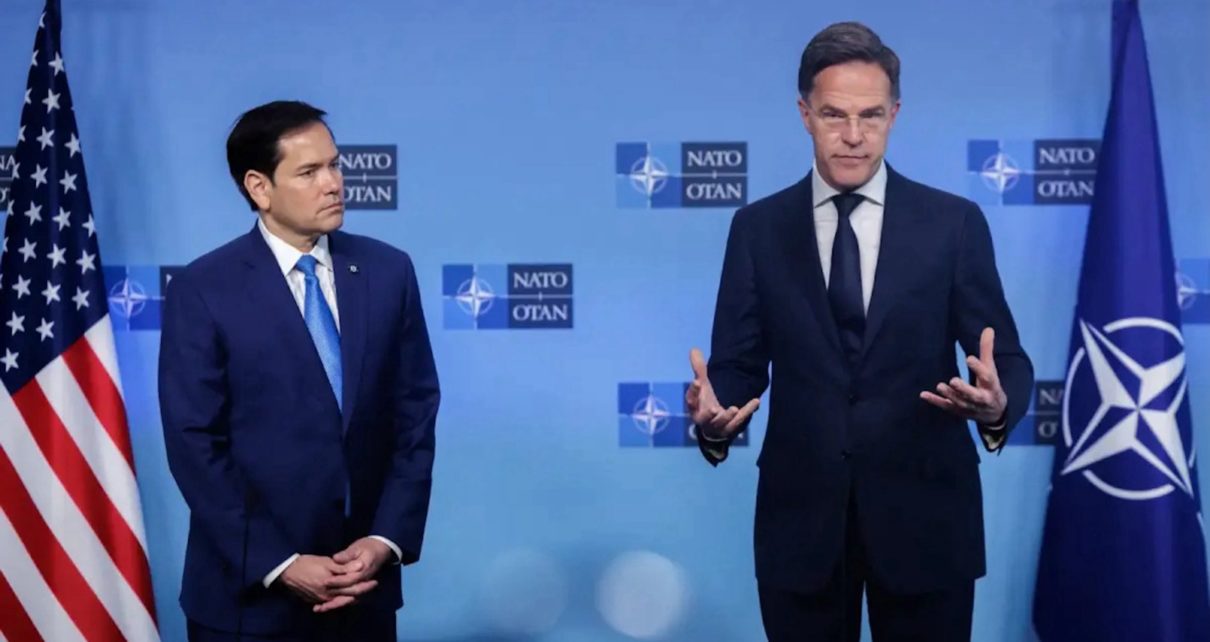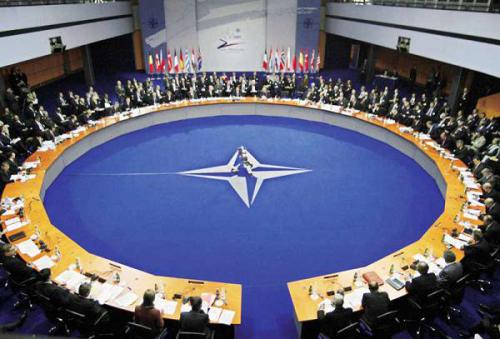In early April, U.S. Secretary of State Marco Rubio spoke softly and carried a big stick at a NATO Ministers of Foreign Affairs meeting in Brussels. A more mainstream, small-l liberal Republican in an overwhelmingly “MAGA” administration, Rubio was probably the most suitable Trump cabinet pick to dispatch to Europe to smooth over relations with the representatives of other NATO members. Rubio offered assurances that Washington remains committed to the organization, although he stressed that this loyalty is contingent on NATO remaining “capable.” This is not an unreasonable line of argument, nor unprecedented. What was a bit more eyebrow-raising was Rubio’s stipulation – seemingly dictated to other members – that NATO members raise their defence spending, not to the agreed-upon floor of 2%, but to 5% of their national GDPs. This particular demand is unprecedented, but consistent with the Trump Administration’s knack for moving the goalposts in the deals it strikes with other governments.
The MAGA movement has fantasized about the second coming of Donald Trump as a kind of “daddy’s home” moment in American history, when an authority figure returns to put the dysfunctional American house in order. There is little doubt that this attitude extends to foreign affairs, too, not just domestic politics. This has infused Washington, and the American public to an extent, with a sense of moral righteousness and patriarchalism vis-à-vis their allies.
To be absolutely clear, there is legitimacy to America’s criticism of other NATO members for neglecting their military preparedness over the years. Any honest historian of the organization will report that free-riding has been a persistent problem with the organization since its founding. However, this is not the whole story. It must be emphasized that NATO is more than a military alliance. It is also a political organization, and Washington’s one-note discourse on military spending risks occluding this fact. This may even be the Trump Administration’s intention, to skirt around treaty commitments it finds inconvenient.
The North Atlantic Treaty’s most famous article – Article 5 – stipulates that, “…an armed attack against one or more [members] in Europe or North America shall be considered an attack against them all…” But it is listed fifth for a reason. It is embedded in a larger treaty context that cannot be glossed over. NATO is the most effective and durable alliance in history because it is more than just an alliance. The Holy Alliance, the Triple Entente, the Axis Pact – other historical alliances have been formed among states that procured collective defence commitments or military co-operation from and for their members. The North Atlantic Treaty’s Article 5 is not particularly unique in this respect.
What makes NATO different is that its collective defence mechanism is embedded in a broader network of political and economic commitments specified in the North Atlantic Treaty. Those signatory to this treaty – ironically also known as the “Washington Treaty” – commit to it in toto. It is not meant to be cherry-picked.
Article 2 of the North Atlantic Treaty is particularly devastating to the Trump Administration. It is worth quoting in full: “The Parties will contribute toward the further development of peaceful and friendly international relations by strengthening their free institutions, by bringing about a better understanding of the principles upon which these institutions are founded, and by promoting conditions of stability and well-being. They will seek to eliminate conflict in their international economic policies and will encourage economic collaboration between any or all of them.” The first 100 days of the Trump presidency have been marked, not by a contribution to “peaceful and friendly international relations,” but rather open contempt for them. Stability? Free institutions? Eliminating conflict with other members in international economic policies? The Trump Administration has cultivated none of these.
So, when Washington sermonizes about Allied follow-through on a pledge of spending 2% of GDP on defence – a commitment, but not technically a treaty obligation – it needs to be confronted with its violations of the spirit of the actual treaty text. Article 2 is far more fundamental than a pledge included in a 2014 communique, the validity of the latter notwithstanding. Moreover, the Trump Administration needs to be confronted with the obvious irrationality of its demands for NATO members to increase their defence spending as a fraction of their GDPs, all the while credibly threatening to shrink their economies through trade wars. Achieving a higher percentage of defence spending as a share of a GDP that has shrunk is counter-productive.
Washington may very well respond with its own contextual argument. Indeed, Article 3 enjoins members to, “by means of continuous and effective self-help and mutual aid…maintain and develop their individual and collective capacity to resist armed attack.” While no particular defence spending target is codified in this article to set the bar for what “self-help” and “capacity to resist armed attack” look like, devoting 2% of the GDP to military spending seems perfectly consonant with such an obligation.
But to what end do the Allies build each other up to resist attack? Ultimately, it is to uphold “the purposes and principles of the Charter of the United Nations and their desire to live in peace with all peoples and all governments,” as stated in the Washington Treaty’s preamble. Mr. Rubio needs to be asked what his boss is asking other NATO members to boost their military spending for. Defence preparedness is a means to an end, not an end in itself, and that end is political. What politics is NATO now defending? Is it a politics that propounds beggar-thy-neighbour economic warfare? Is it a politics that countenances territorial seizures and threats of annexation of other NATO members? Is it a politics that considers Great Power wheeling and dealing normative, which sacrifices the interests of freedom-fighting Ukrainians for the sake of staking out the boundaries of spheres of influence in a post-rules-based international order?
NATO members signed up to uphold the Charter of the United Nations, not to make America great again.
Photo: U.S. Secretary of State Marco Rubio and NATO Secretary-General Mark Rutte in Brussels (2025), by EPA Images via Free Malaysia Today. Public Domain.
Disclaimer: Any views or opinions expressed in articles are solely those of the authors and do not necessarily represent the views of the NATO Association of Canada.




